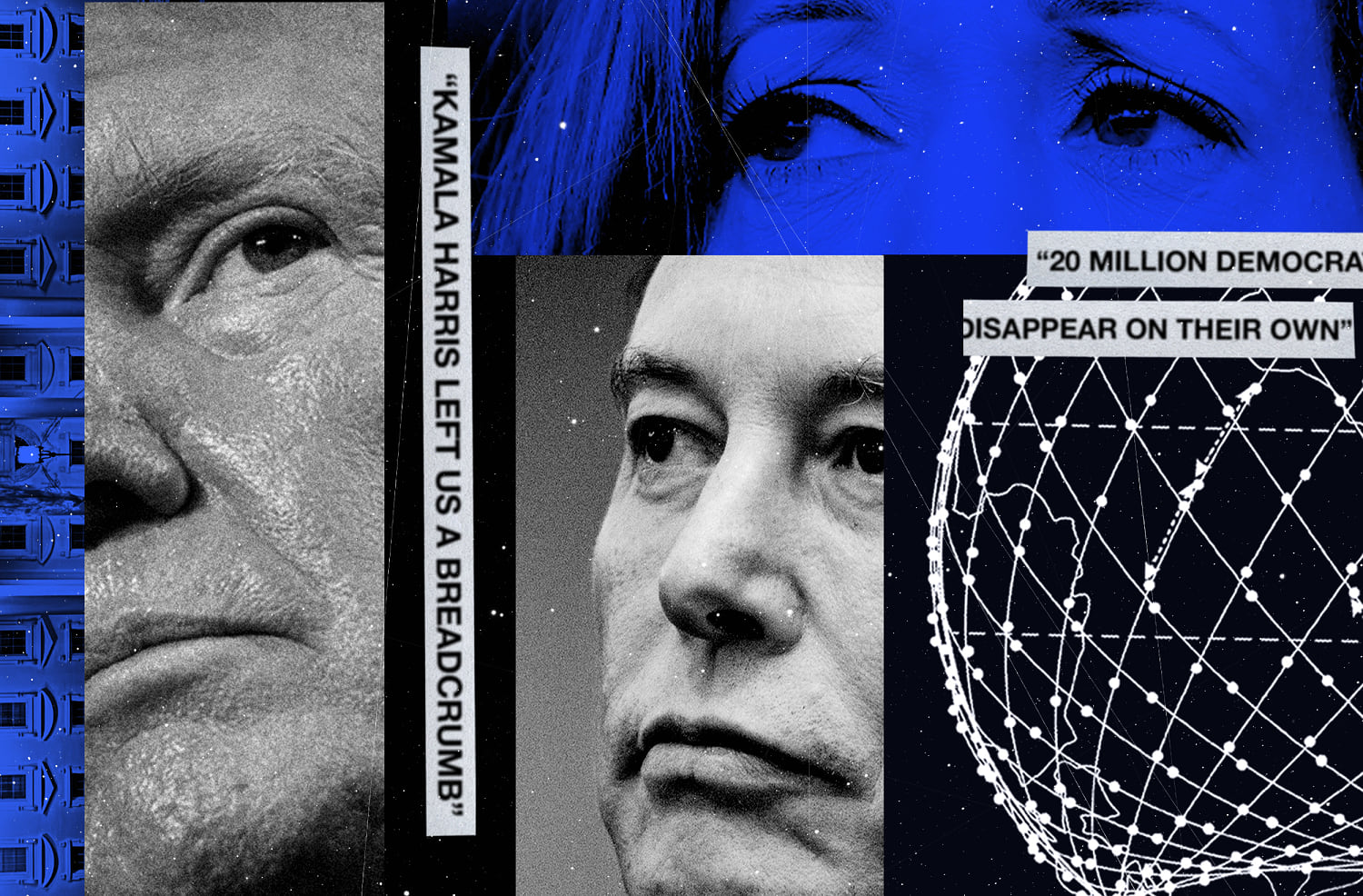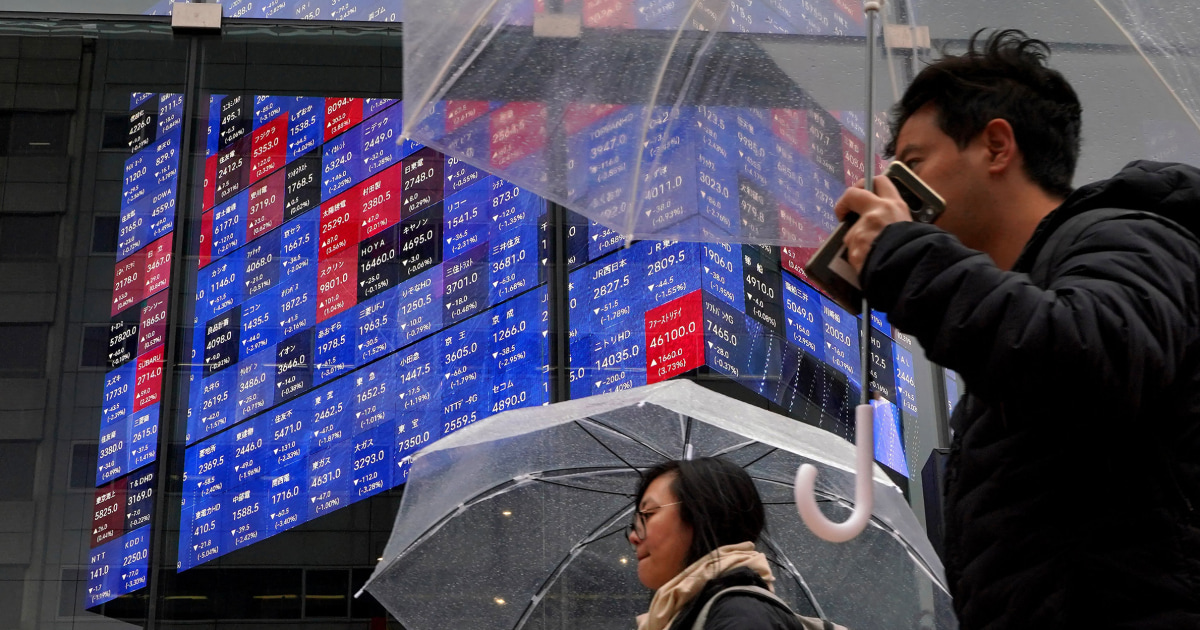
In the days following the presidential election, a familiar strain of denialism and conspiracy thinking began to emerge in the corners of some social media platforms. On the right, familiar conspiracy theories about voting popularized by President-elect Donald Trump continued to circulate. But similar ideas also took hold among some supporters of Vice President Kamala Harris and have continued to spread.
NewsGuard, a firm that monitors misinformation, found that nearly 800 social media accounts and video channels had published false or egregiously misleading claims about the 2024 election starting on Sept. 1, along with over 960 websites and more than 1,200 “partisan sites masquerading as politically neutral local news outlets.” Sam Howard, NewsGuard’s U.S. politics editor, said that the misleading election claims had been seen on a variety of platforms, including X, Threads, Reddit and Facebook.
According to NewsGuard, the false narratives being spread online have emerged from both sides of the aisle: Where Democrats won, like in the U.S. Senate election in Wisconsin, Republicans alleged vote-counting “irregularities,” while some Democrats alleged that Trump’s win was rigged with the help of Elon Musk’s Starlink satellite internet provider. There’s no evidence this is true.
On platforms including TikTok and X, NBC News identified dozens of videos and posts — which reached over 10 million viewers, according to public view counts — that shared conspiracy theories related to Musk, Starlink and election denialism. NewsGuard said there was “no evidence” that Starlink was used to interfere with the presidential election in Trump’s favor. Individual election systems are not interconnected, and there is no evidence currently suggesting that Starlink or Musk interfered with vote tallies.
Max Read, a senior research manager for elections at the Institute for Strategic Dialogue, a think tank studying extremism, hate and disinformation, said the post-election denialism popping up on the left is “the most significant” effort to dispute or undermine elections he has observed from that side of the aisle.
“We see limited engagement on these types of things from liberal spaces or left-leaning actors online,” Read told NBC News. “It’s a pretty insignificant level of discourse compared to the right.”
While Republican candidates for office and Trump have pushed election denialism and conspiracy theories about elections, aided by a vast and growing network of right-wing media outlets and social media figures, the same support and infrastructure doesn’t measure up on the left. While there are some left-leaning influencers who have trafficked in undermining the 2024 election, they don’t have the same reach or network. Conservative voter denialism efforts have also spiraled into violent rhetoric since 2020, while liberal rhetoric so far has not.
“I tend to think there is a lot less room to grow, for now, on the left, compared to the right,” Read said. “Part of that is the infrastructure. The buy-in is just not there from prominent media outlets on the left or elected officials, things like that.”
NewsGuard’s Howard said that the majority of left-wing accounts that shared false election claims are “somewhat obscure” in comparison to the accounts that were sharing misinformation in the days following the 2020 presidential election, where more established right-wing figures helped many of the conspiracy theories gain traction. He also said that some of the theories that have been emerging from the left have given right-wing accounts the opportunity to promote election myths from the past.
“People have pointed to the results of the election last week versus the results from the election four years ago, and folks on the right have advanced this claim that it somehow affirms that the 2020 election was stolen,” Howard told NBC News.
Howard also said that many left-wing accounts that shared misinformation regarding the legitimacy of the 2024 presidential election had been flagged by the firm in the past for sharing theories that the attempted Trump assassination over the summer had been staged. No such theories have ever been substantiated.
“People look for easy answers in times of crisis, and for those who view this election result as a crisis for themselves or just a shock, it’s somewhat natural to look for something to explain that away and to explain why your expectations weren’t met,” Read said. “And I think that’s consistent across the ideological spectrum, meeting a shock with searching and uncertainty about where to find answers and sometimes falling into and latching onto things that aren’t true but are easy explanations.”
“This may be just a passing moment that does not lead to lasting belief in election denial narratives on the left, or it may have more traction. It’s a ‘wait and see’ on that front.”
Some of the election denialism claims that originated on the right have been echoed on the left, particularly related to Musk, who pushed a debunked conspiracy theory about Dominion voting machines in Pennsylvania while campaigning for Trump in the weeks leading up to the election. As the 2024 election results were reported, social media users on the left began to speculate about Musk’s role in vote counting.
In an episode of his podcast a week after the election, Joe Rogan told comedian Theo Von that Musk had “created an app” to see the election results hours in advance. Left-wing creators began to speculate how Musk was able to have pulled these results, building a baseless conspiracy theory that Starlink was used to manipulate vote tallies. One TikTok user made a video with 300,000 views citing a local news report that said one district in California used Starlink’s internet services at its polling site — the report said Starlink was used to connect poll workers’ laptops to the internet, not the voting machines. A majority of California voted for Harris. Another TikTok video cited Harris’ concession speech, in which she said, “Only when it is dark enough can you see the stars,” suggesting that she was referencing Starlink.
Voting machines are not connected to the internet during the election process. Nonetheless, a TikTok with over a million views said, “Starlink was used to tally up some of the votes … so I just want to know, when is the court date going to be for Elon Musk?” It is false that Starlink was used to tally up some of the votes.
All three TikTok videos were removed from the platform after NBC News reached out for comment.
NewsGuard also highlighted a statement on X made by Jen Easterly, the director of the U.S. Cybersecurity and Infrastructure Security Agency, that addressed election conspiracy theories, writing that the agency had “no evidence of any malicious activity that had a material impact on the security or integrity of our election infrastructure.”
Read said that social media platforms like TikTok have been moderating some of the posts containing misinformation about the election in line with their policies.
“One of the first kind of significant posts that we saw about it was on TikTok. That was last weekend. It sort of went viral and moved from there to a lot of reposts on X, and then that video was taken down by TikTok earlier this week,” Read said. “The platforms, at least in some cases, are taking action on this conspiracy theory.”
TikTok’s policies forbid misinformation about the electoral process. X’s policies forbid misinformation meant to interfere in elections.
Despite these policies, some left-wing TikTok and X users also speculated that there was still a chance for Harris to win the election after noting a change on the website of the Harris Victory Fund, a fundraising committee for Harris’ campaign. On the site, it said that a portion of the funds would be allocated to the “President’s Recount Account.” The site also said the funds would be used to support down-ticket Democrats.
Some users connected this change with efforts to recount the vote, hoping it would be in favor of Harris, as well as conspiracy theories that Trump and Republicans rigged the election. Hashtags such as “#Trumpcheated,” “#DoNotConcedeKamala” and “#Recount2024” began trending on X after the election was called for Trump.
“Kamala Harris left us a breadcrumb,” one TikTok user said about the updated language on the fund’s website in a video that received over 700,000 views. “Just because we aren’t storming any capitols, those of us who actually understand how elections work understand that the numbers aren’t numbering.”
The Wall Street Journal reported that on the morning of Nov. 6, the ActBlue PAC’s website had also been updated to say that it would allocate a portion of the funds to the “President’s Recount Account,” but a Democratic National Committee spokesperson said in a statement to NBC News that all of the funds given to the Harris Victory Fund are going to the DNC. While fundraising efforts will continue to benefit the Democratic Party, the language being used to solicit funds has inadvertently driven some of the conspiratorial thinking about the election results.
Some users also raised concerns regarding voter turnout in comparison to the 2020 presidential election, with one X user writing, “20 Million Democrats just sat this one out?? No way. Not a chance.” The post did not contain a visibility label and was not visibly suppressed.
CISA responded to this speculation on its website’s “Rumor vs. Reality” resource, where it has debunked election misinformation. The agency wrote that “variations in vote totals for different contests on the same ballot occur in every election and do not by themselves indicate fraud or issues with voting technology.”
The FBI also released a statement addressing election misinformation in which it addressed “a fabricated video” that claimed the FBI had received “9,000 complaints about malfunctioning voting machines,” which the agency called false.








